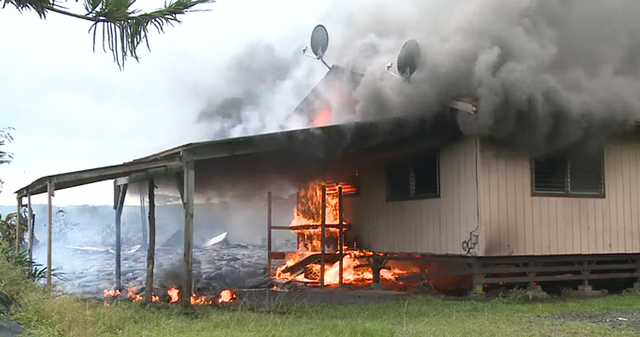A team of Hawaii and mainland scientists is seeking to take out some of the uncertainty surrounding lava flows as part of a three-year study that could help Hawaii Island residents decide when they should evacuate.
A team of Hawaii and mainland scientists is seeking to take out some of the uncertainty surrounding lava flows as part of a three-year study that could help Hawaii Island residents decide when they should evacuate.
As Pahoa and lower Puna residents learned during the past year with the June 27 lava flow, such natural disasters can be quite unpredictable. Small changes in topography, fluctuations in output and other variables can force a change in direction or halt the advance of molten rock.
But, with the help of some “very smart statisticians,” residents living downhill of a volcanic eruption could be given a better idea of their risk level, said Bruce Houghton, a University of Hawaii at Manoa volcanologist and one of the study leaders.
With data received from the recent and more historical lava flows, Houghton said the researchers hope to help residents make more informed decisions on whether to relocate, stay put, or stock up on supplies. For instance, different risk levels could be assigned to areas based on statistics and the changing nature of the flow or eruption.
“It’s just going to give individuals who might be at risk a much more precise notion of when they’re at risk and when they need to react,” he said, adding the response to the June 27 flow was the best that has “ever happened anywhere.”
“What we’re looking to do is make it better.”
The $1.2 million study is funded by the National Science Foundation and will involve U.S. Geological Survey, UH-Manoa, University of California-Berkeley, University of Washington, Duke University, Marquette University and University at Buffalo.
Additionally, the team will look at volcanic activity at Long Valley caldera in California.
The Kilauea study also will include a sociological component.
Houghton said that will involve surveying residents about their decision to stay or evacuate. That work will likely begin next year, he said.
Email Tom Callis at tcallis@hawaiitribune-herald.com.

